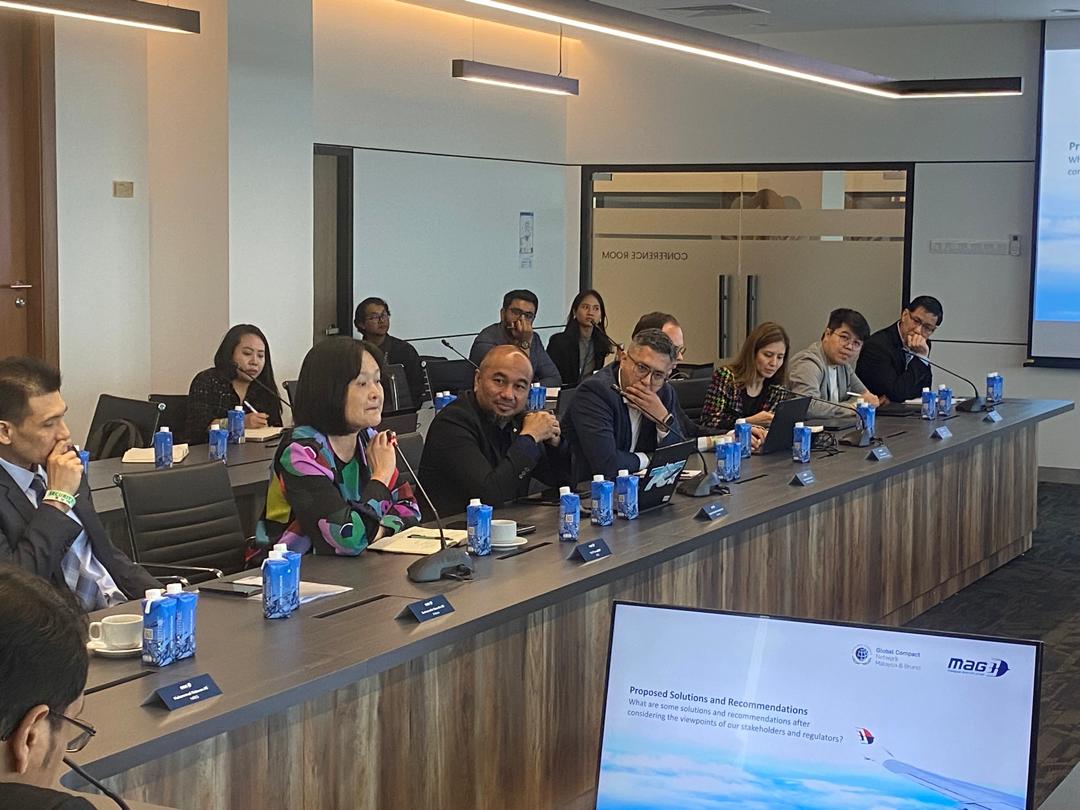THE Malaysian Aviation Group recently came up with the MAG Sustainability Roundtable to address the effort of decarbonisation in the local aviation industry.
Various experts were called in to discuss the topic, hailing from diverse industries such as Morgan Stanley, IATA, Airbus, Ministry Of Economy, Petronas, Boeing and more.
According to IATA Head Of South East Asia Yuli Thompson, one of the reasons why the aviation industry is slow in their effort to decarbonise is due to the stickiness of technology.
She said within the global aviation industry, things take time to change as more than one player is required for it to happen.
Yuli said fleet renewal takes years to be effected, being costly, for example, the change from a four engine to two engine airplane.
However, the change was said to result in about 15 to 20% reduction in carbon emission.
“Last year 2023 and 2022 in fact, every drop of SAF produced was bought by airlines. Last year the production of SAF actually doubled from 2022 and it represented a staggering 0.3% of jet fuel used by airlines in the world,” she said.
Speaking about the recovery of airlines post covid, Yuli went on to state that in south-east asia, airlines are averaging from 90 to 95% from international traffic.
Malaysia Aviation Group Group Chief Sustainability Officer Philip See said, “There is a growing segment like working professionals are aware of the challenges of decarbonisation, rising temperature and global warming. They take it very seriously.”
He added that ultimately, it is difficult to pinpoint a specific category of people as their motivations and drive are different.
When asked about the demand for green aviation, See said customers are willing to pay a premium, however there is an added cost to decarbonisation. It is about finding the timing and balance, and integrating both.
According to IATA Director General Willie Walsh in a statement, there are several potential solutions to accelerate aviation’s access to critical SAF quantities.
Among them, about 80% of SAF expected to be produced over the next five years is likely to come from hydrogenated fatty acids such as used cooking oils, animal fats, and more.
Accelerating the use of other certified pathways and feedstocks, including agricultural and forestry residues and municipal waste, will greatly expand the potential for SAF production.
Ministry of Plantation and Commodities (bio fuel division) secretary Dr Sang Yew Ngin said, “For us, SAF is not the low hanging fruit. We think that it is operational efficiency.”
He said this is about how the plane is driven and the addition of equipment to reduce energy usage inside the plane.
“We are serious about the production of SAF because the feedstock comes from our resources, our oil palm as our main resource,” he said, adding that the ministry feels Malaysia already has enough policies.
Instead of policies, strategies are required on how to move forward in terms of SAF production. Sang said the ministry has been persuading various stakeholders to come up with a biorefinery plant with Petronas recently being confirmed.
Sang added that the price of SAF can be about three or five times more expensive than the average jet fuel, hence it is not fair to implement a mandate too quickly, which will result in the rise of domestic flight prices. – Aug 23, 2024
Main image: ttgasia.com









